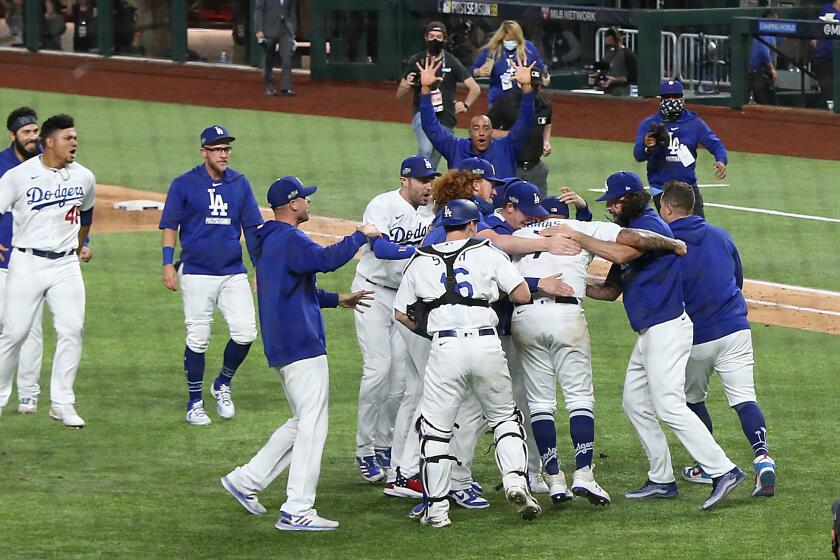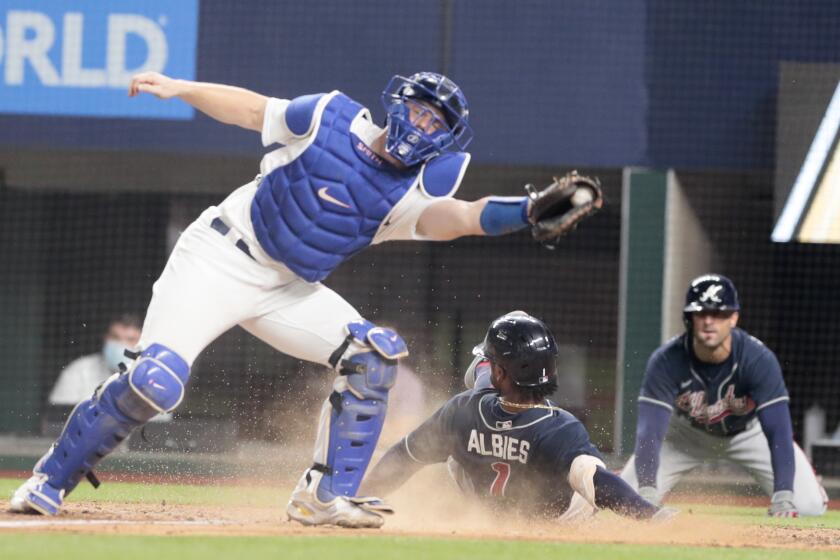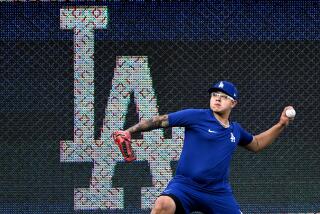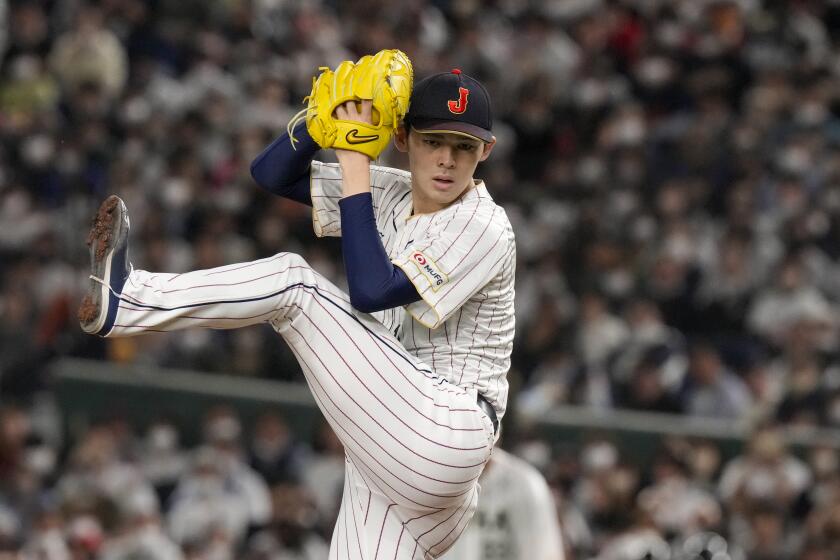Column: From child prodigy to Game 7 stalwart, Julio Urías etches his name in Dodgers lore
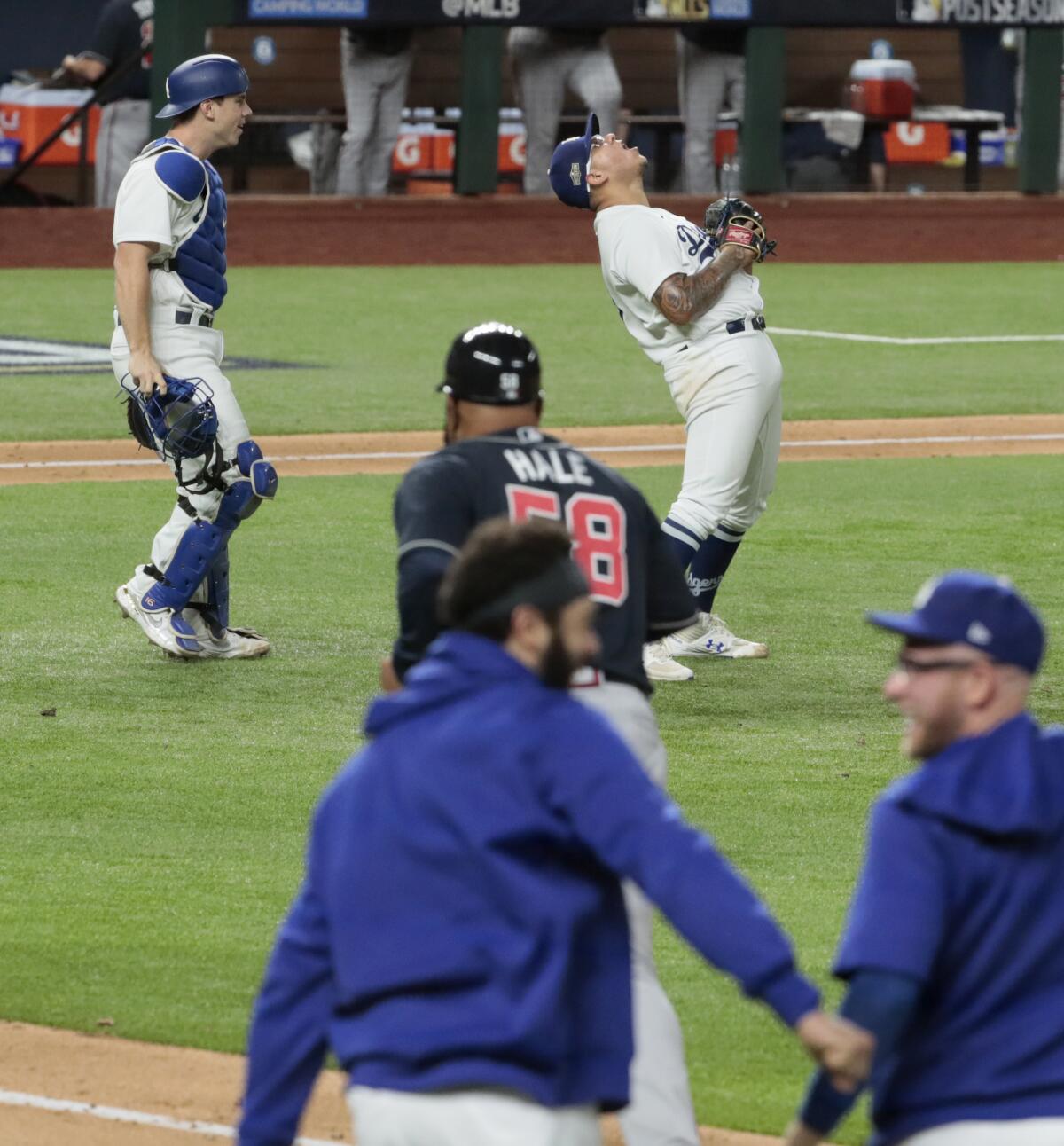
- Share via
He’s spent his career in between — between the present and the future, between the Dodgers’ rotation and bullpen.
Which is why, five years into his major league career, Julio Urías is still trying to figure out where he belongs in this game.
Sunday night, the 24-year-old former child prodigy from Mexico claimed a permanent place in franchise history.
Urías pitched the Dodgers into the 2020 World Series.
“It was his moment,” manager Dave Roberts said.
Urías blanked the Atlanta Braves over the final three innings of a 4-3 victory in Game 7 of the National League Championship Series in Arlington, Texas, retiring each of the nine batters he faced.
Photos from Game 7 of the National League Championship Series between the Dodgers at Atlanta Braves at Globe Life Field in Arlington, Texas.
He earned his second win of the series, the first coming only four days earlier, when he threw 101 pitches in a Game 3 start.
Hours before that start Wednesday, Roberts was asked whether Urías could be the team’s future closer.
Roberts chuckled.
“We could have that conversation later, but, right now, I love him as a starter for the Dodgers in Game 3.”
Well, later came sooner than expected.
Game 7 marked the seventh game in seven days for the Dodgers. Their bullpen was spent.
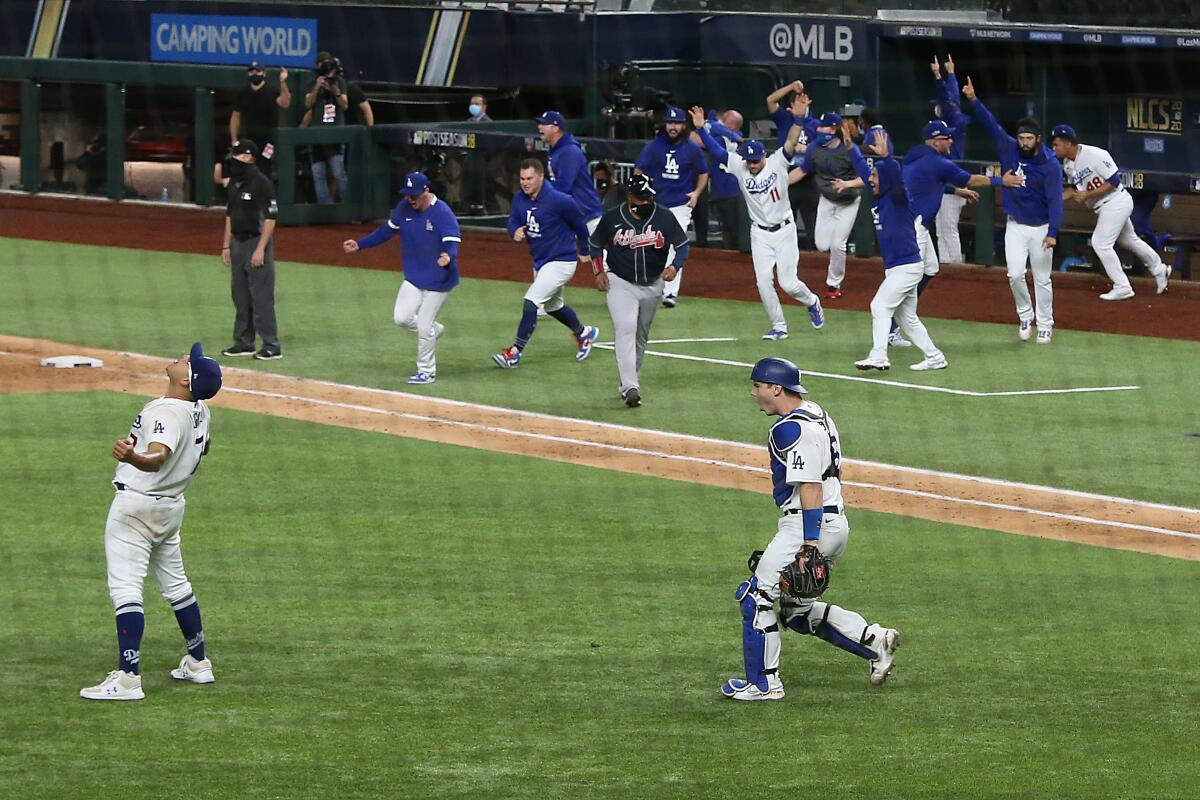
Game 5 starter Dustin May returned to pitch as the opener. He was replaced in the second inning by Tony Gonsolin, who was expected to pitch the majority of the innings. But Gonsolin didn’t pitch well and forced Roberts to turn to Blake Treinen to finish the fourth inning.
Treinen returned for the fifth inning. Brusdar Graterol pitched a scoreless sixth.
With the score tied 3-3 through six innings, Roberts called on Urías, who pitched in relief in the NL wild-card and divisional rounds.
Urías was breathtaking.
His fastball touching 96 mph, he recorded his first three outs on only 10 pitches.
The quick seventh inning positioned Urías to earn the victory when Cody Bellinger launched a 94-mph sinker by Chris Martin into the right-field stands in the bottom of the inning.
Urías responded by navigating through the middle of the Braves’ order in the eighth inning. Their best hitter, Freddie Freeman, worked a nine-pitch at-bat, but Urías ultimately made him line out weakly to center field.
In Roberts’ mind, there was little question about who would pitch the ninth inning.

Kenley Jansen had pitched in each of the two previous games. This was Urías’ game to finish.
“I trust him,” Roberts said.
Urías forced Ozzie Albies to ground out. He made Dansby Swanson do the same. And when his changeup was lazily golfed to center field by Austin Riley, Urías raised his arms skyward.
Bellinger caught the fly ball, prompting Will Smith to approach the mound in celebration. Urías slapped Smith’s chest protector and embraced the catcher.
In the immediate aftermath of the victory, NLCS most valuable player Corey Seager marveled at Urías’ composure.
“That was his moment right there,” Seager said. “That was his game to win, and he went out and did it.”
The journey to postseason glory was an unconventional one for Urías.
The Dodgers signed him as a 16-year-old on the same 2012 trip to Mexico in which they landed Yasiel Puig. They deal happened by chance. The Dodgers were in town to see another prospect, a catcher named Julian Leon.
Urías was still 16 when he pitched in the Class-A Midwest League. His precocity presented a problem for the Dodgers, who had to balance his short- and long-term interests, as well as their own.
Talented Dodgers and Braves battled through a seven-game NLCS, and they could easily meet again in future postseasons.
Even after he broke into the majors as a 19-year-old, they continued to manage his workload carefully. He was shuttled back and forth between the majors and minors. He started at times and pitched in relief in others.
His development was set back further by a shoulder injury in 2017 that required surgery. He spent most of 2018 in recovery.
“Julio is very talented,” Roberts said. “He’s very smart, and he’s very tough. We’ve kind of handled him over the last four years with kid gloves, kind of trying to build him up and put him in different roles, some that he hasn’t really liked and appreciated, which I totally get. But when it comes down to it, he just wants to pitch, wants to compete and wants to help the Dodgers win.”
Including a pair of wins he picked up as a reliever in the previous two rounds, he’s 4-0 this postseason.
He’s a veteran of 16 postseason games with a career playoff earned-run average of 2.84. He has six career postseason victories, which is more than any pitcher has ever recorded before his 25th birthday.
And he now has his signature moment, three innings that will forever change how he is viewed. Sunday night, for the first time in his career, what he did was more important than whom he could become.
Hernández reported from Los Angeles.
More to Read
Are you a true-blue fan?
Get our Dodgers Dugout newsletter for insights, news and much more.
You may occasionally receive promotional content from the Los Angeles Times.

